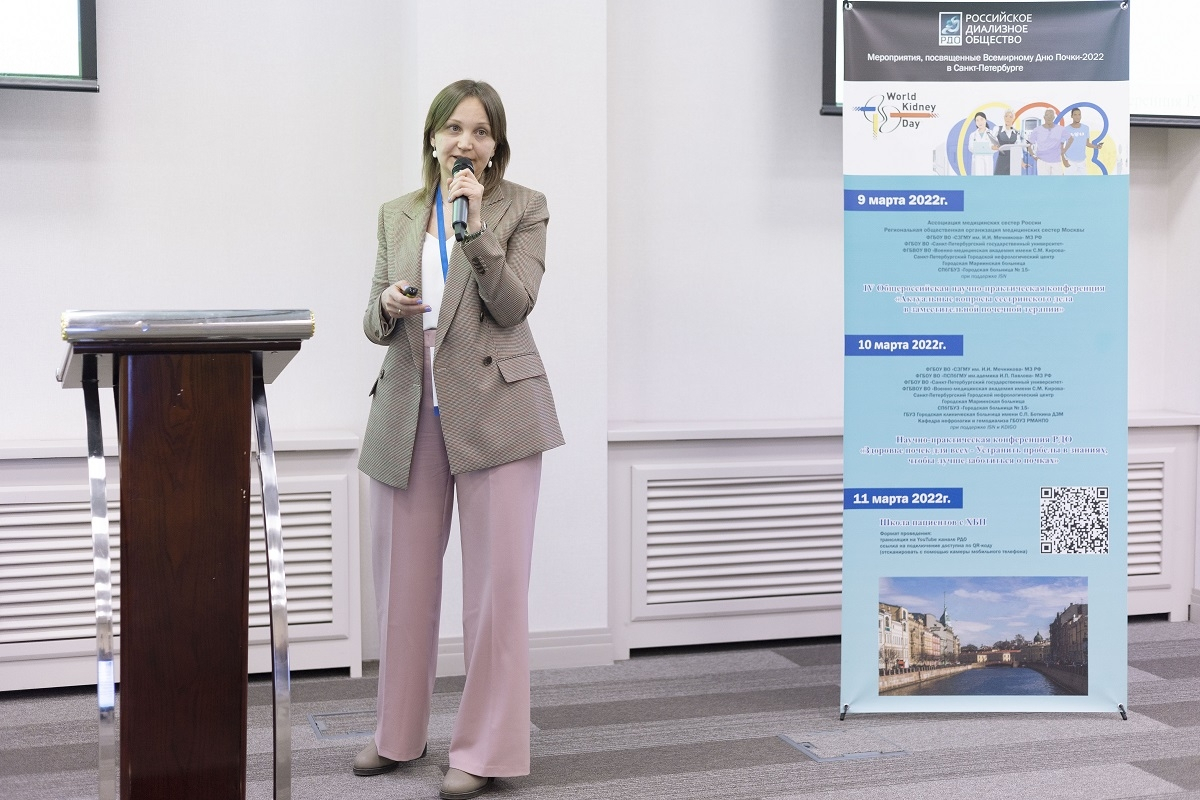St Petersburg University doctors: after COVID-19, patients with kidney disease retain antibodies longer than healthy people

Doctors at St Petersburg University’s Pirogov Clinic of High Medical Technologies have conducted a study during which they were able to ascertain how long antibodies are retained in patients who are receiving replacement therapy with haemodialysis. The scientists spoke about their findings at a research-to-practice conference of the Russian Dialysis Society, which was dedicated to World Kidney Day and co-organised by St Petersburg University.
The St Petersburg University Pirogov Clinic of High Medical Technologies
Nephrologists and geneticists Ekaterina Parshina, Alexey Tolkach, Andrey Ivanov and Pavel Kislyy from the St Petersburg University Clinic participated in this project, along with Doctors Alexey Zulkarnaev and Abduzhappar Gaipov from Moscow and Nur Sultan (Kazakhstan), respectively. The research findings have been published in the journal Renal Failure.
‘It was known that patients with terminal kidney disease who receive maintenance haemodialysis are at increased risk of mortality after becoming infected with the coronavirus. They are more likely to be seriously ill and to be hospitalised than people without co-morbidity,’ said Dr Parshina. ‘However, it was not known whether their immune response to COVID-19 differs from that of people with normally functioning kidneys.’
Haemodialysis cleans the blood of patients whose kidneys do not function naturally.
As part of the study, the St Petersburg University scientists analysed the data from two groups. The first one consisted of patients whose kidneys were not functioning, their work having been taken over by haemodialysis, and the second, of people with healthy kidneys. Both groups — more than 50 people — had been infected with the coronavirus while unvaccinated. The level of their IgG antibodies and the extent of their T-cell immunity (‘memory cells’) were determined three times after they had recovered — two months, four months and six months after they had contracted the disease.
As a result, the doctors concluded that all of the haemodialysis patients retained their immunity throughout the entire study. In this group, however, the antibodies disappeared from their bodies more slowly than in the group with normal kidney function.
The scientists explained that this is an atypical immune response. Traditionally, the bodies of patients with chronic kidney disease lack natural protection. They need, for example, more hepatitis B vaccinations.
‘The results that we have obtained are encouraging. Now we know that patients who are on haemodialysis do not lose immune protection faster than people with normally functioning kidneys, so it is not necessary to alter their vaccination schedule,’ Dr Parshina clarified. ‘In addition, it can be expected that the long-term immune response to vaccination for COVID-19 in this vulnerable group will also turn out to be comparable to that of the general population.’

